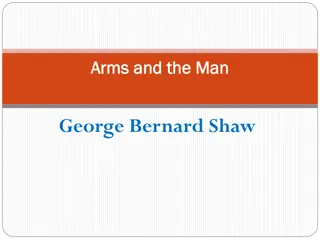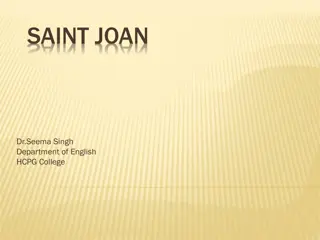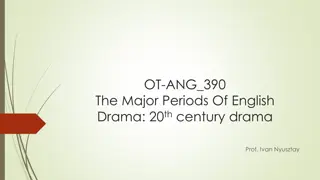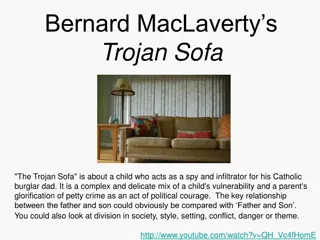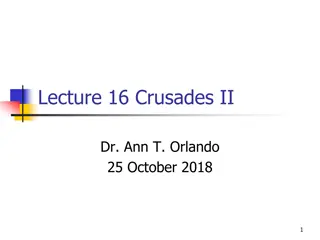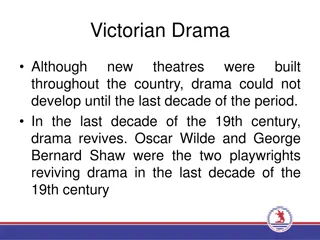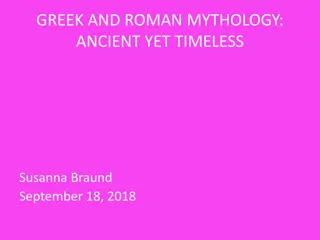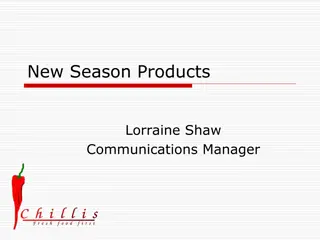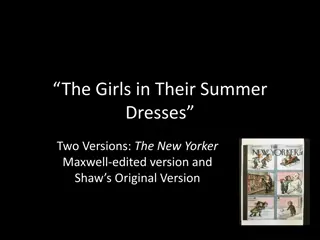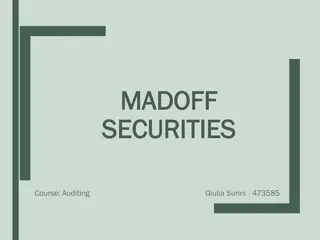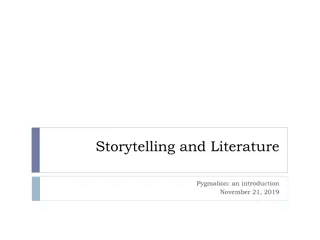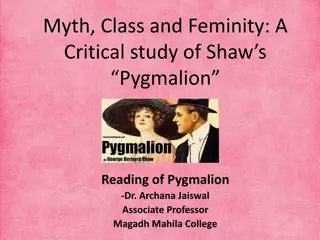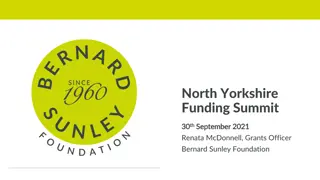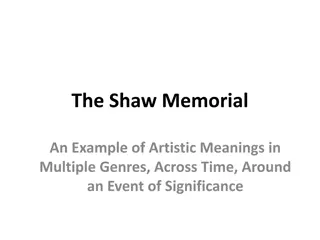Pygmalion: A Play by George Bernard Shaw
George Bernard Shaw's iconic play "Pygmalion" explores the themes of language, class structure, education, and gender through the characters of Eliza Doolittle, a poor flower girl, and Henry Higgins, an arrogant linguistics professor. The play delves into the societal perceptions of individuals and the conflicts that arise when trying to transcend class boundaries. With humor and wit, Shaw masterfully portrays the complexities of human interactions and the impact of societal norms on individual identity.
Download Presentation

Please find below an Image/Link to download the presentation.
The content on the website is provided AS IS for your information and personal use only. It may not be sold, licensed, or shared on other websites without obtaining consent from the author.If you encounter any issues during the download, it is possible that the publisher has removed the file from their server.
You are allowed to download the files provided on this website for personal or commercial use, subject to the condition that they are used lawfully. All files are the property of their respective owners.
The content on the website is provided AS IS for your information and personal use only. It may not be sold, licensed, or shared on other websites without obtaining consent from the author.
E N D
Presentation Transcript
PYGMALION TOPIC TOPIC: : CHARACTERS
PYGMALION PYGMALION GEORGE BERNARD SHAW GEORGE BERNARD SHAW
1. SHAW s most famous play PYGMALION was first performed in 1913. 2. In 1956, the musical version of Pygmalion called My Fair Lady was staged. 3. And in 1964, the film starring Audrey Hepburn was released. The film went on to win Eight Oscars including Best Picture.
PYGMALION: INTRODUCTION In this play, George Bernard Shaw uses humor and lively characterization to explore how Language, Class structure, Education, Gender influence how people are seen by society.
The TWO Main CHARACTERS are; ELIZA DOOLITTLE a poor but proud flower girl with a cockney accent. HENRY HIGGINS an arrogant and insensitive linguistics professor.
Higgins decides to take the girl on as a professional challenge. He boasts to his associate Colonel Pickering that with six months of lessons, Eliza could be passed off as a duchess.
THE PLAY Although Eliza wants to learn, there is tension between her and Higgins. She also wants to be treated with respect, as a person. Higgins, however, persists in treating her as a project and an object.
MAJOR CONFLICT Status Divide 8 Gender Relations Social Snobbery Conflicts Self Consciousness
Major Conflict Status Divide The Nature of class structure Upper Class: Higgins, Colonel Pickering, Mrs. Higgins, Mrs. Clair and Freddy Eynsford Hill. Middle Class: Mrs. Pierce represent middle-class morality alone. In many ways that is also a quality of Higgins and Col. Pickering s class. Lower Working Class: Eliza, Alfred Doolittle and his never seen but often heard about wife. and Eliza s step-mother.
ELIZA DOOLITTLE Protagonist, poor flower girl who wishes to be rich and happy Role Daughter of Alfred, experiment subject to Higgins and Pickering, possibly means more to Higgins Relationship Cannot change her inner characteristics to suit the newly changed outer appearance. Argues with Higgins on this subject Conflict Is able to stay true to herself and to not conform to please society. Significance
MR. HIGGINS 12 Antagonist, Professor of phonetics and tries to teach Eliza the proper ways of society. Role Friend to pickering, wishes to be friends with Eliza Relationship He tries to change Eliza's personality but she wont let him. He also has a hard time understanding women. Conflict His actions show that no one can change another's character Significance
COL. PICKERING Another researcher of phonetics Role Friend to Higgins, and a friend to Eliza(like father) Relationship Trying to get Eliza and Higgins to understand each other Conflict He did not change his morals to suit Higgins' needs Significance
MRS. PEARCE Motherly figure, and Housekeeper Role Protector of Eliza, and keeps Higgins in line Relationship Has trouble in trying to reason with Higgins Conflict Is a role model to Eliza Significance
MR.FREDDY HILL Ideal image of a man at the time (to Eliza) Role has feelings for Eliza over time, they marry Relationship Argues with the people of his society on his choice of Eliza. Conflict Gives hope to Eliza Significance
ALFRED DOOLITTLE Eliza's father Job = dustman Drunkard Elderly but vigorous, expressive voice His face is free from fear and conscience
Expresses his feelings freely wonderful talker Lazy (Doolittle= do little ) Doesn't want much money, just enough to enjoy his life Does not try to improve his life Relationship with Eliza: Used to beat and neglect her (Illegitimate daughter) Sudden interest could make out money of the situation
MRS.HIGGINS Henry's mother High class- Great character, intelligent, charming, Wealthy and independent Accepts people as they are. Calm take control of every situation Ideal mother: wise, tolerant, caring and understanding
Treats her son like a naughty child Knows how ambitious her son is, so she sympathies with Eliza Role in the play: Reasonable: shows her disapproval for the experiment Model for Eliza in her new surroundings Mediator between Eliza and Higgins Expresses the common sense, responsible view
CLARA EYNSFORD HILL Upper middle class Aggressive, disrespectful, selfish, impulsive, pathetic Behaves badly Not married she has not recognized that Eliza was the flower girl at first Function in the play: Shaw is mocking the social pretensions from the upper and upper-middleclass, which prevents them form facing up to reality
Mrs. Eynsford Hill Freddy s mother Upper middle class Means the same things as Clara but in a more polite way Treats Freddy like a child Gives too much -wants to keep up appearances Bored and ashamed of her daughter's reactions Her hopes shattered when her son marries Eliza, the poor flower girl.
NEPOMMUCK Old student of Higgins teaches English now Is ask by the ambassador's wife to find out more about Eliza Thinks Eliza is a foreigner because of her perfect accent Tells the ambassador's wife that Eliza is a hungerian princess Is chocked when Higgins that Eliza comes from the London gutter
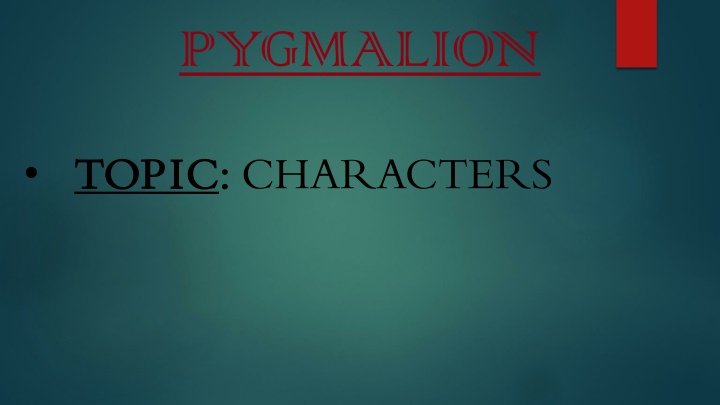

![❤[PDF]⚡ Civil War Talks: Further Reminiscences of George S. Bernard and His Fel](/thumb/20551/pdf-civil-war-talks-further-reminiscences-of-george-s-bernard-and-his-fel.jpg)
![❤Book⚡[PDF]✔ Doing the Impossible: George E. Mueller and the Management of NASA’](/thumb/21684/book-pdf-doing-the-impossible-george-e-mueller-and-the-management-of-nasa.jpg)

